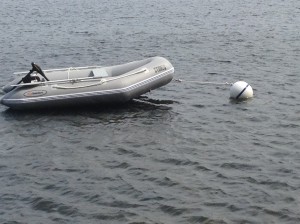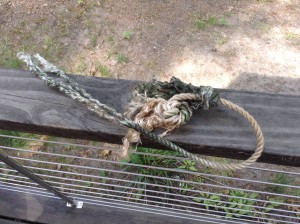Paul Steven Stone: Oh captain, my captain
 He never aspired to greatness when it came to navigating bodies of water. Salt-laden or spring fed, large or small, Atlantic Ocean or Plymouth pond, it didn’t matter. He knew his place in the world, and it was not in a vessel afloat on water wearing the captain’s mantle. His destiny was that of a passenger or crew member. His comfort lay in never making decisions that affected the well being of a boat or the safety of its passengers.
He never aspired to greatness when it came to navigating bodies of water. Salt-laden or spring fed, large or small, Atlantic Ocean or Plymouth pond, it didn’t matter. He knew his place in the world, and it was not in a vessel afloat on water wearing the captain’s mantle. His destiny was that of a passenger or crew member. His comfort lay in never making decisions that affected the well being of a boat or the safety of its passengers.
And now, at the tender age of 69, he suffered a temporary loss of self-awareness that saw him purchase an inflatable boat so small as to be unfit for carrying more than three slim and motionless passengers at the same time. Though if they weren’t so difficult to bring on board, he would have preferred his passengers to be comatose, which guaranteed their weight would never shift. But then again, he correctly figured, the inflatable dinghy had little room to cater to the needs of supine or prostrate passengers.
And so, on a recent morning, he boarded his craft and set out by himself to voyage on a nearby pond where the craft was moored.
How easy to blithely declare “he boarded his craft and set out by himself to voyage on a nearby pond.” Much easier, it turns out, than it actually was to board his craft or voyage on the pond. For one thing (and remember we are speaking about a 69-year-old sailor) our brave adventurer had considerable difficulty jumping into the boat at the depth it was moored.
Clearly, to those with eyes to see, casual boating was not for the faint of heart or those fully ripened in their years.Before he could board his craft, after numerous attempts, he needed to guide it into shallower depths where he could essentially step into the boat one foot at a time. Fortunately, the electric motor allowed for such shallow depths, its shaft and propeller easily pivoting out of the water. Once, of course, he finally remembered to release the catch. This the same valiant motor, which had lately survived an ignominious submersion when the inflatable boat had flipped upside down in unusually blustery, if not hostile, winds.
And did I mention the wind?
Yes, there was a wind blowing this fateful morning. A strong wind that created a current he could see rippling across the surface of the pond. A wind so strong, he quickly surmised, that his modest motor could not easily steer the flat-bottomed, lightweight boat in any direction that resisted the wind’s steady resolve. And so after a brief excursion to the center of the pond our venerable skipper decided to cut his voyage short.
As if to prove the danger inherent on the water, and the wisdom in his decision to cut and run, our captain entangled the motor’s propeller in an errant coil of rope—“IT’S NOT ROPE, IT’S CALLED LINE,” his wife, who grew up on boats, repeatedly told him—and found himself magnetically drawn to the three hazards that surrounded his cottage’s shoreline.
First, he ran over a giant branch whose spindly grasping limbs reached out from the water like witches’ fingers issuing a stern warning. A warning he was unfortunately unable to heed, much as he and his fouled, struggling motor would try.
Next, after safely untangling the propeller and feeling newly invigorated, he and his boat were inexorably drawn into the rough facing of the only rock that stands above the surface in the entire expanse of the pond’s 62 acres.
Lastly, as if to end his voyage on a note of poetic irony, he was swept into, and half across, the buoy whose mooring line he was desperately reaching for.
The day before he had taken his five-year old granddaughter for a boat ride without noticeable wind or incident except, as he explained to her mother, “I have trouble parking,” which he proceeded to prove at journey’s end by ingloriously falling out of the boat. This day was no different as he attempted to dismount the boat and ultimately found himself falling head-first into the shallow depths and struggling once again to regain his footing. Almost immediately, as he surfaced, he realized the boat’s electric motor was still engaged, or had re-engaged by accident, and quickly and energetically—for a man his age—chased the boat down and turned off the motor.
No applause, please!
And so we leave our stalwart senior once again on land and once again shivering in his wetness in the wind. Nothing seriously hurt except perhaps his vanity. In the last few weeks he has spent more time in these pond waters than he had the six previous summers. First there was the mooring that had to be set up; the knots that had to be tied and re-tied. Then the rains came, sending him out twice in two days. First to rescue the battery that was dangerously close to having its plastic case breached by the accumulating rain water, second to bail out the rain water. Next, he had to go in to rescue his overturned boat and motor. Then lastly, once again into the water to restore the boat to its mooring.
Now, it bobs gently on the water, pretending to be easily boarded and safely steered wherever whim or whimsy might take it. And maybe someday he’ll believe that’s true.
But for now, it seems truer that—to quote the poet—“Home is the sailor, home from the sea.” To which I would only add…
“And the clumsy captain free from his pond.”
Paul Steven Stone is a Cambridge-based writer. This piece originated on his Web site, paulstonesthrow.com.
